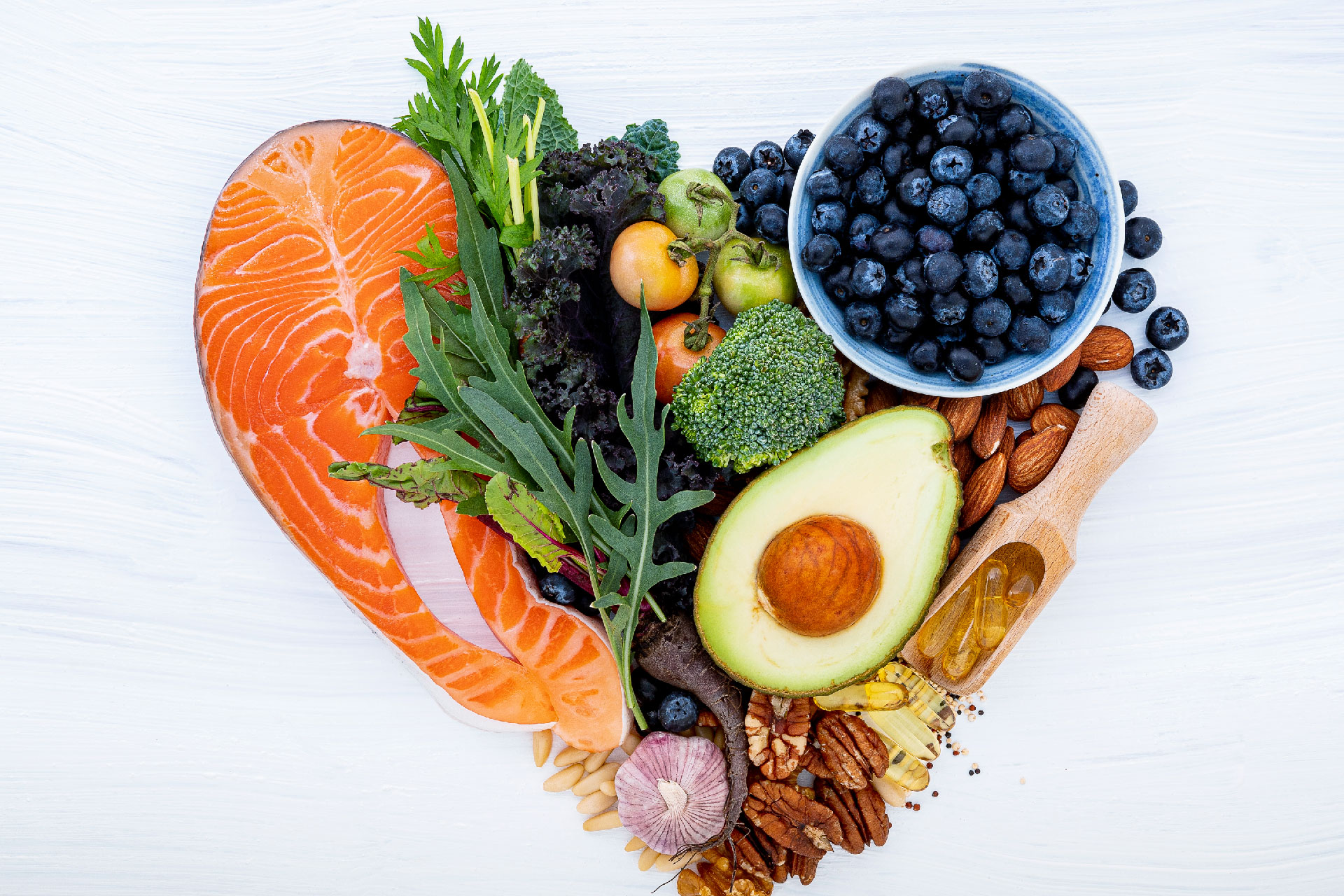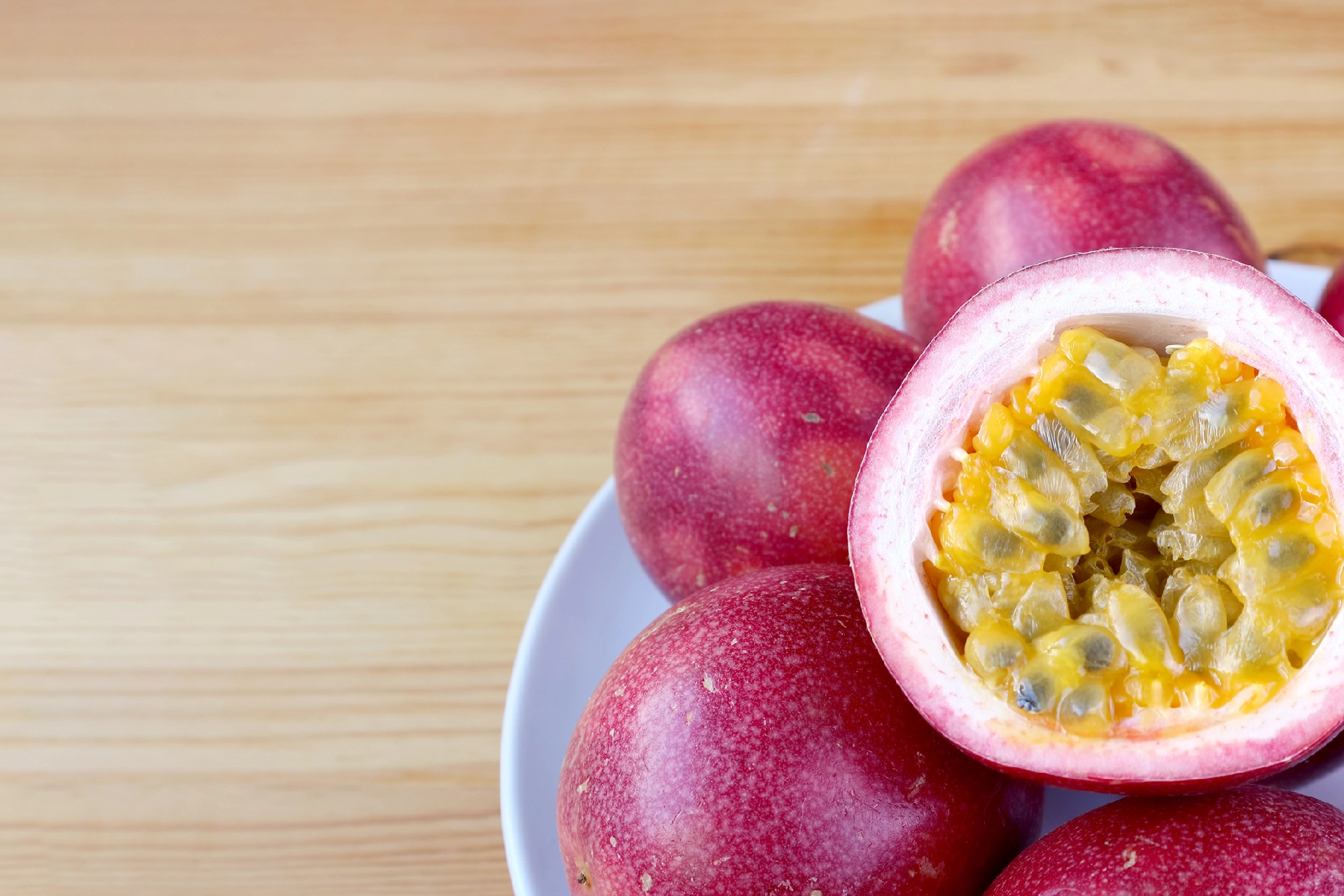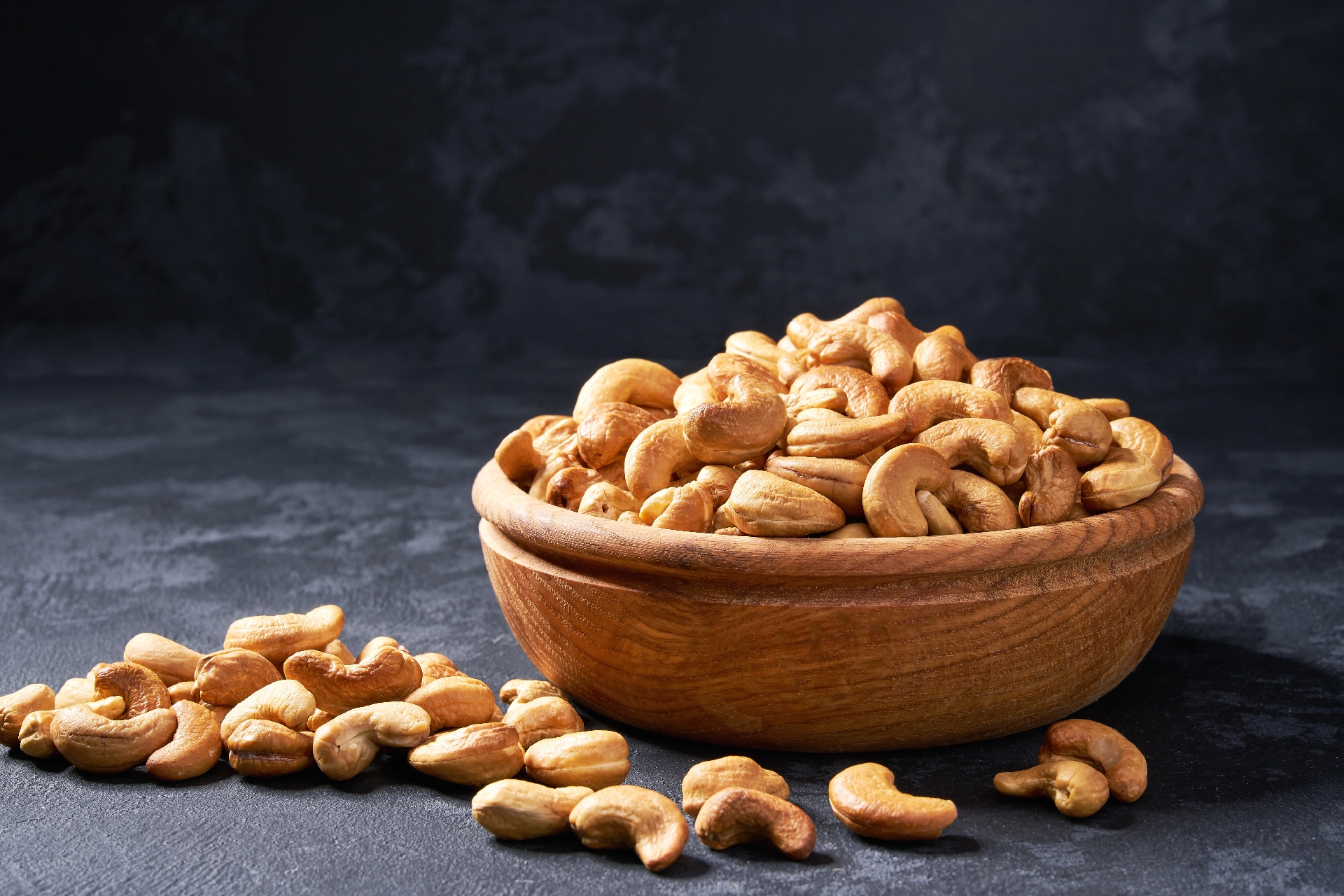General Physician | 8 min read
Carbohydrates Foods: 9 Food Sources and Health Benefits
Medically reviewed by
Table of Content
Synopsis
They are several foods that are highly rich in carbs which can be an essential part of a balanced diet. Therefore, it's crucial to select the proper kind of carbohydrate foods.
Key Takeaways
- List of foods that are enriched in carbohydrates
- Beneficial health qualities of the listed carb foods
- Some effects of carbs restriction on our health
Carbs meaning carbohydrates are made up of carbon and water, as its name would imply. Water is made of hydrogen and oxygen, which further means it is also made of carbon, hydrogen, and oxygen. The body gets its energy mostly from carbohydrates foods, giving you the power you need to go about your everyday tasks. The brain uses carbohydrates to fuel both mental and physical activity. Whole grains and veggies are two excellent sources of healthy carbohydrates foods that are also important nutritional sources of fiber, vitamins, and minerals. Refined carbohydrates food, such as white bread, white rice, products made with white flour, and anything that contains added sugar, should be consumed in moderation or avoided altogether. Sweet potatoes, navy beans, brown rice, chestnuts, bananas, lentils, oatmeal, milk, raisins, and nutritious snacks like brown rice cakes are some beneficial high-carb foods. Three hundred grams are the current daily value (DV) for carbohydrates.
Carbohydrates can exist on their own and are referred to as monosaccharides (1 sugar), in pairs as disaccharides (2 sugars), in large groups (called polysaccharides), or in any combination of these. Carbohydrates food, which make up 1% of the human body, are primarily used to fuel cells in the body.
Let's look at some carbohydrates foods that are both high in carbohydrates and very good for our health:
1. Sweet Potatoes
The most common color of sweet potatoes is orange, although they can also be found in white, red, pink, violet, yellow, and purple.
There are a lot of carbohydrates in sweet potatoes. A sweet potato measuring 5 inches offers roughly 26 grams of carbs. One sweet potato contains half the permitted amount of calories from carbohydrates on a low-carb diet. The variety and way of cooking impact the sweet potato's glycemic index (GI). GI values for roasted sweet potatoes can reach 93.2, while those for boiled sweet potatoes might be as low as 41.
Sweet potatoes can be prepared in various great ways, including baking, boiling, mashing, or puréeing; these variations will taste delicious and give you all the nutrients you want. You may use them to make a warm soup, use them in salads, roast them with some olive oil and enjoy them, or make fries. So try your hand at some nutritious experiments with this tasty root vegetable.
Additional read: Benefits of Sweet Potatoes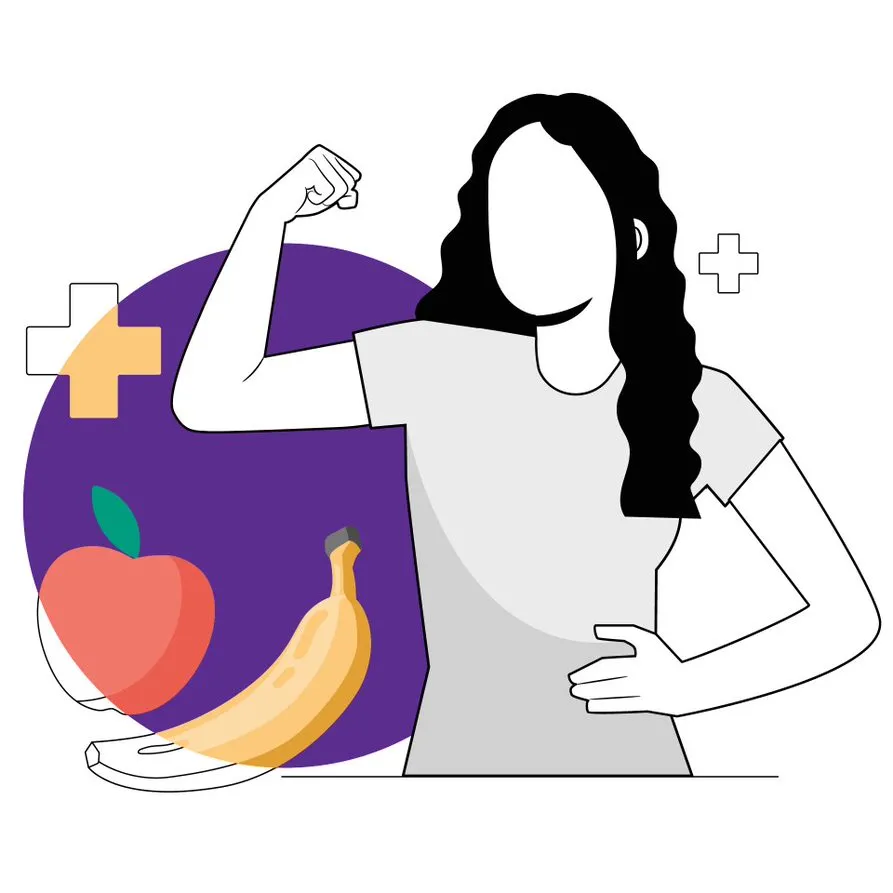
2. Beetroot
Often referred to as beetroots, beets are purple root vegetables. They have a lot for a non-starchy vegetable, despite not being thought to be heavy in carbohydrates. One hundred grams of beets contain about 10 grams of carbs, mainly fiber and sugar. In addition, they are a rich source of plant compounds, potent antioxidants, and vitamins and minerals. Inorganic nitrates, which are abundant in beets and are transformed by your body into nitric oxide, are also among the benefits of beetroot. Nitric oxide reduces blood pressure [1] and may lessen the chance of developing several disorders. In addition, the high nitrate content of beet juice makes it a popular choice among athletes who want to improve their stamina.
3. Corn
Despite its nature as a vegetable, corn is starchy, which means it contains a lot of carbohydrates. You can find about 41 grams of carbs in one ear of corn. Thirty grams of carbohydrates are in one cup of corn. Corn's glycemic index is low. It gives long-lasting energy and a sense of fullness rather than spiking your blood sugar levels since it releases slowly into the bloodstream. They help with weight management since they keep you full for a long time. According to studies, they help control blood sugar levels as well. They are also a good source of vitamin C and antioxidants, which help shield our cells from the harm that free radicals may do.
4. Oats
Due to their high levels of fiber and low glycemic index, oats are a fantastic way to start your day off right. Oatmeal can keep you full till lunch without causing your stomach any discomfort. The majority of the fiber in oats is soluble fiber, which swells in the stomach after absorbing water and keeps you feeling full for an extended period. This aids with weight management in a healthful way. You may find twenty-seven grams of carbohydrates, 4 grams of fiber, and 5 grams of protein in one cup of oats. Additionally, it lowers harmful cholesterol levels, lowering the risk of cardiovascular ailments. Furthermore, oats may support good weight management because they are so full.
5. Quinoa
The seed quinoa is categorized as a whole grain. It contains all nine essential amino acids and is a gluten-free complete protein. Protein, fiber, vitamins, and minerals are also abundant in it. It has more B vitamins than cereals like barley, rye, rice, and corn. Because it is so high in protein, it is healthy for our muscles, skin, and bones. 39.4 g of carbs, 8.14 g of protein, and just 1.61 g of sugar are all found in one cup of cooked quinoa [2]. You can eat quinoa in various meals, including side dishes and cereals. You can add flavor to it with your inventive hands and healthy thinking. Since they are naturally gluten-free, they maintain intestinal health and are a fantastic substitute for wheat.
Additional read: Quinoa Health Benefits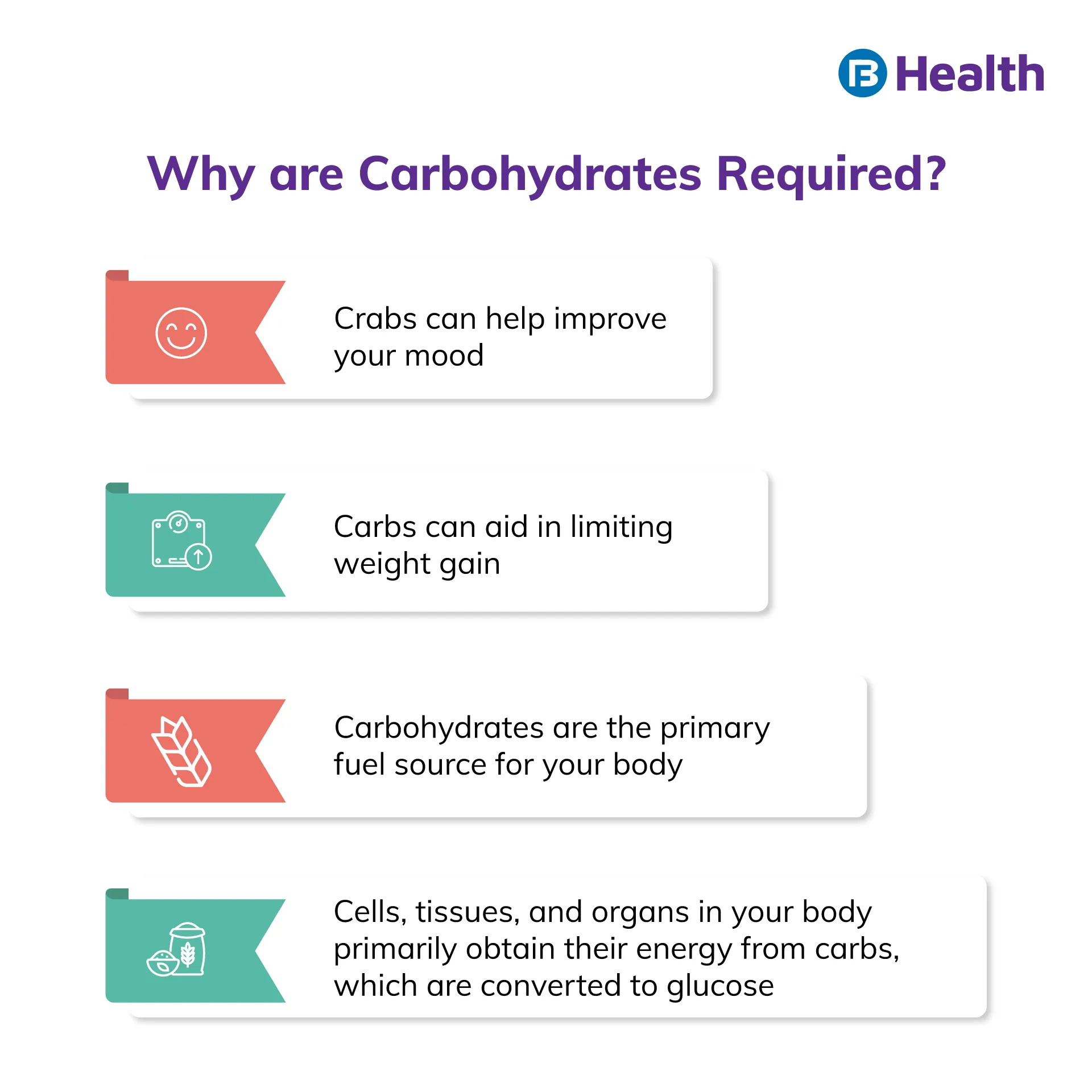
6. Garbanzo Beans
Garbanzo beans, sometimes known as chickpeas, are legumes. Regardless of how they are prepared, they are delicious. Chickpeas have 12.5 g of dietary fiber and 44.9 g of carbs per cup. Iron, magnesium, potassium, sodium, and vitamins A, E, and C are also abundant in them. These garbanzo beans are a fantastic source of plant-based protein for vegetarians and vegans. Due to their high fiber content, they promote heart health, prevent constipation, build bones, aid in weight loss, and guard against various cancers. Another gluten-free alternative for persons with celiac disease or gluten intolerance is chickpeas. In many cultures, chickpeas play a significant role in the cuisine and are prepared and consumed in several ways. For example, they make up the majority of hummus's ingredients.
7. Apples
Apples are a pleasant snack that lowers cravings during the weight loss process. The carb content of 100 grams of apples is 16 grams. In addition, they are abundant in potassium, fiber, vitamin C, and vitamin A as well as antioxidants. As a result, they have several positive health effects, including enhancing intestinal health, enhancing immunity, lowering cholesterol, protecting the heart, and reducing inflammation. In addition, the body may be protected from oncogenic cells by several potent antioxidants provided by apples.
8. Blueberry
The taste of blueberries is fantastic. Since they contain potent plant chemicals and antioxidants, they are frequently referred to as "superfoods." In addition to 14.5 percent carbohydrates, they are primarily made up of water. Vitamin C, vitamin K, and manganese are just a few of the many vitamins and minerals that blueberries are rich in. The health benefits of blueberries are extraordinary. As a result of the numerous vitamins, minerals, and antioxidants they contain, they shield the body from oxidative damage. According to studies, antioxidant chemicals found in blueberries can help protect your body from harmful free radicals. In addition, consuming blueberries may, according to some studies, boost elders' memory.
9. Oranges
The citrus fruit, which is orange in color, has a tangy, sweet, and reviving flavor that almost everyone enjoys, whether it be in drinks or ice cream. Oranges are abundant in antioxidants, vitamin C, fiber, and carbohydrates, in addition to being a great source of antioxidants. There are around 15.5 grams of carbohydrates in 100 grams of oranges. This citrus fruit, mostly water, also includes potassium, vitamin B, and other plant substances. Oranges speed up cell renewal, strengthen the immune system, facilitate iron absorption, and prevent early aging in the body.
Effects of Carbohydrate Restriction on Health
Along with protein and lipids, carbohydrates food are one of the essential nutrients that the body needs.
A diet that balances all major nutrients is typically the most healthy one that a person can consume. Low-carbohydrates food diets are, nonetheless, supported by some individuals in specific situations.
Controlling Blood Sugar
People with type 2 diabetes who limit their carbohydrate intake can control their blood sugar levels better. However, before making any dietary changes or considering a vegetarian diet, patients with type 2 diabetes should consult with their doctor, or they can have an online doctor consultation to review all available treatment choices.
Weight Loss
Reducing your intake of carbohydrates food may help you lose weight quickly. Although the rate of weight loss slows over time, this is primarily due to water loss in the initial phases. Before beginning any restrictive dieting, people should always have a doctor's consultation.
Cholesterol levels
According to some studies, a low-carb diet can raise HDL (high-density lipoprotein) cholesterol levels. This is frequently referred to as "good" cholesterol. However, research on the relationship between carbs and low-density lipoprotein, or "bad" cholesterol, is still debatable and lacks solid evidence.
The body requires carbohydrates food to function correctly. However, without a good nutrition plan, cutting out carbohydrates might result in nutritional imbalances. Only after seeing a general physician should a person reduce the number of carbs in their diet. Book an online doctor consultation with Bajaj Finserv Health and get to know about the perfect nutrition plan for you.
References
- https://www.ncbi.nlm.nih.gov/pmc/articles/PMC6164974/
- https://www.nutritionadvance.com/types-of-whole-grains/
Disclaimer
Please note that this article is solely meant for informational purposes and Bajaj Finserv Health Limited (“BFHL”) does not shoulder any responsibility of the views/advice/information expressed/given by the writer/reviewer/originator. This article should not be considered as a substitute for any medical advice, diagnosis or treatment. Always consult with your trusted physician/qualified healthcare professional to evaluate your medical condition. The above article has been reviewed by a qualified doctor and BFHL is not responsible for any damages for any information or services provided by any third party.
